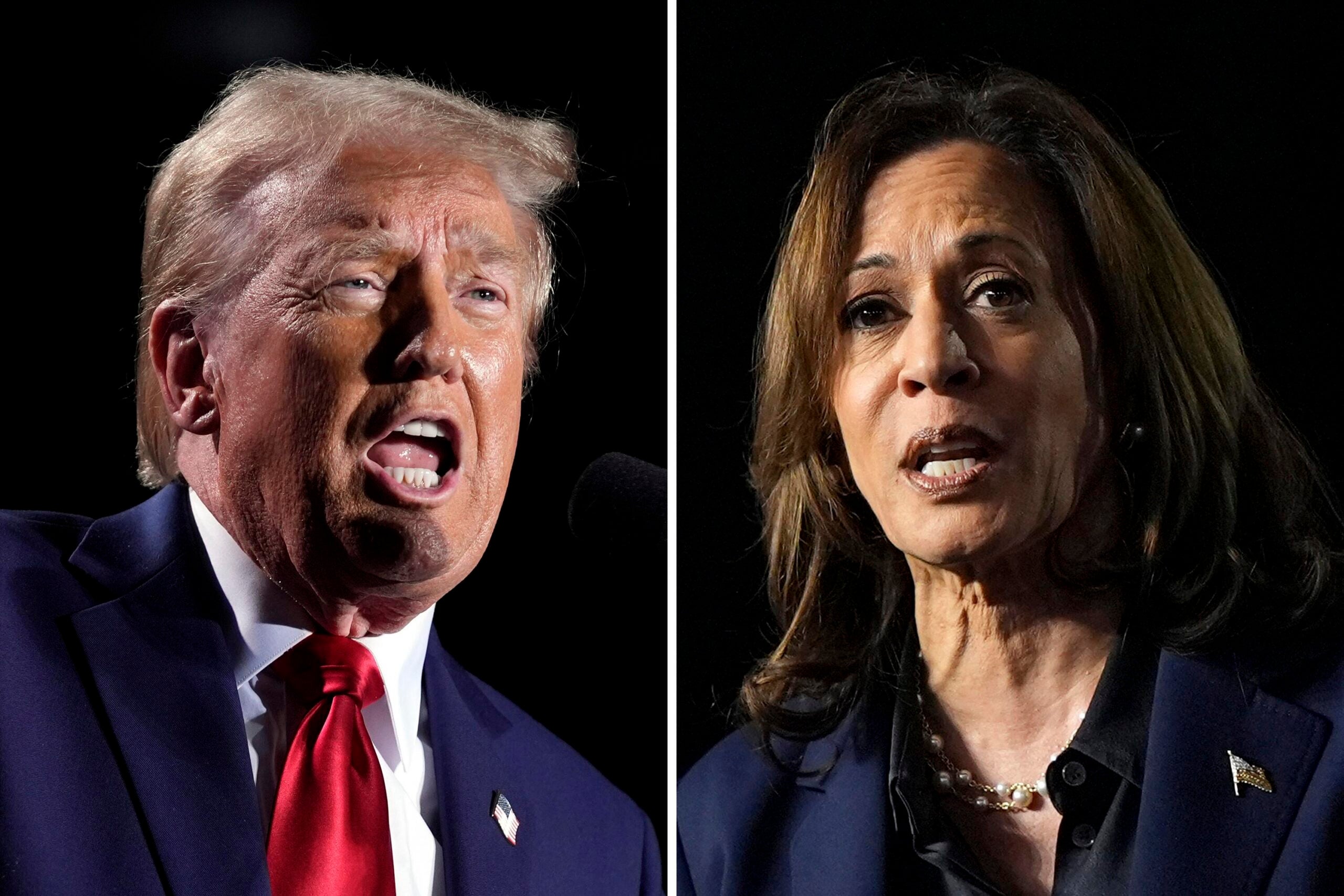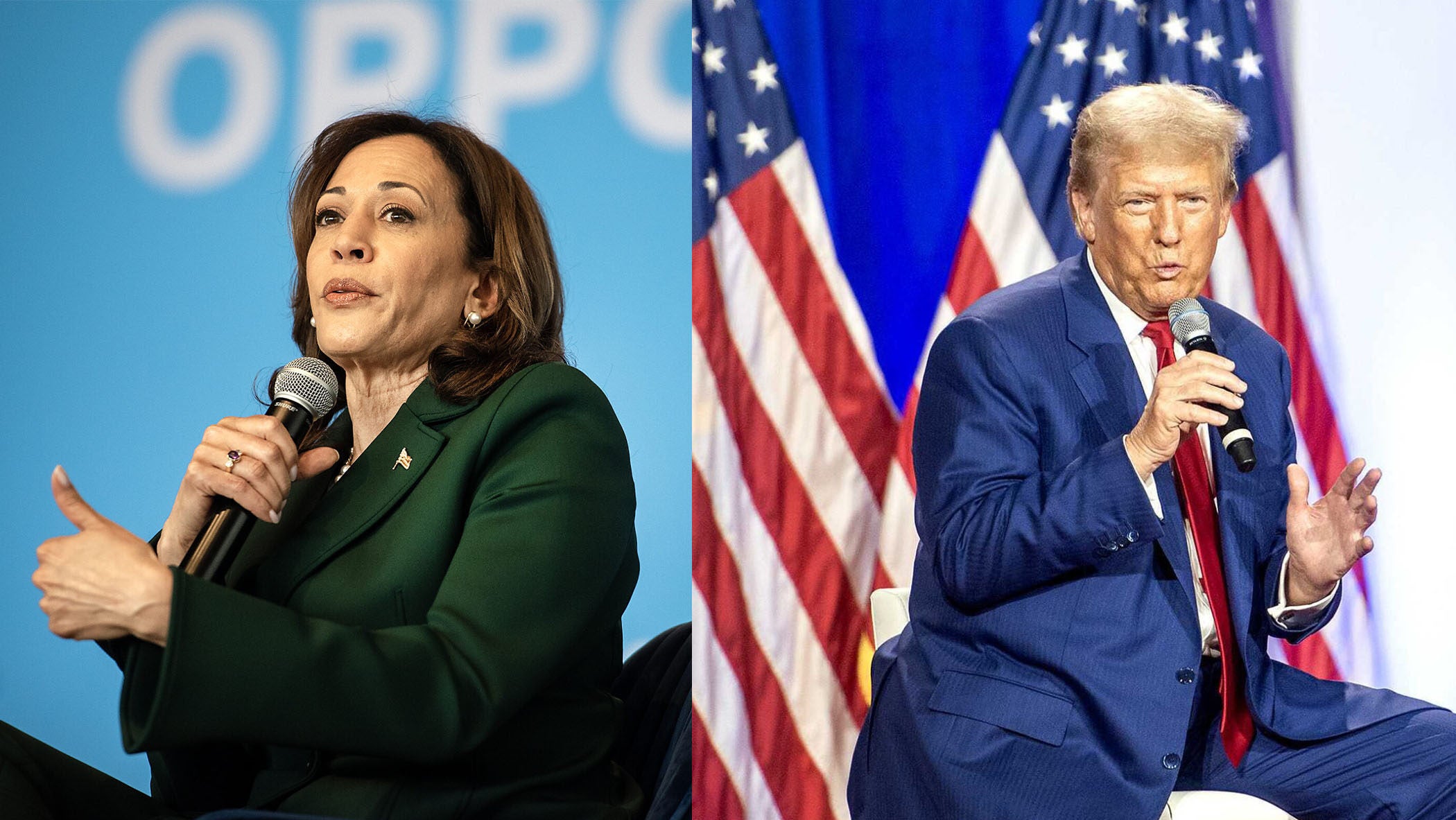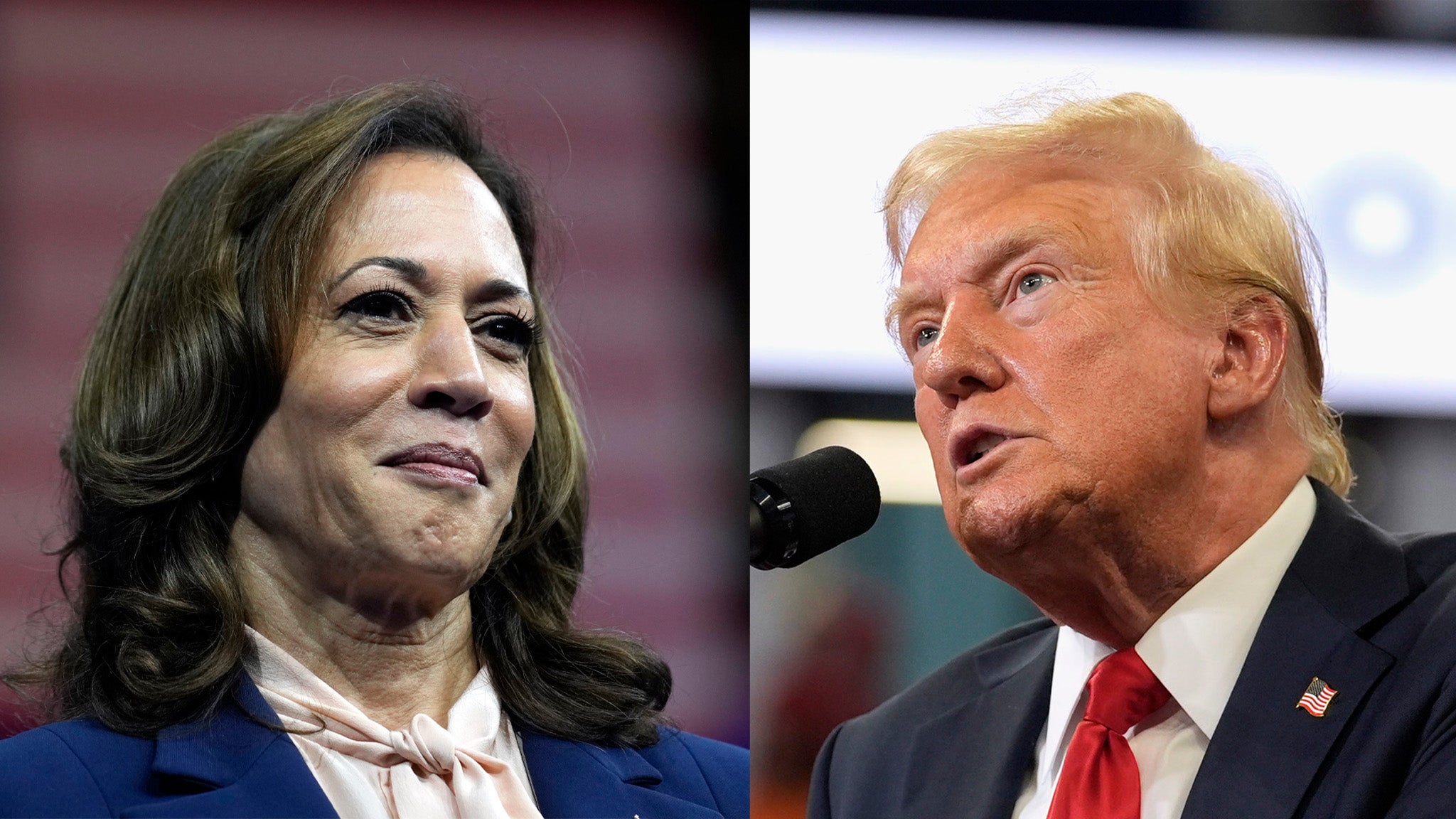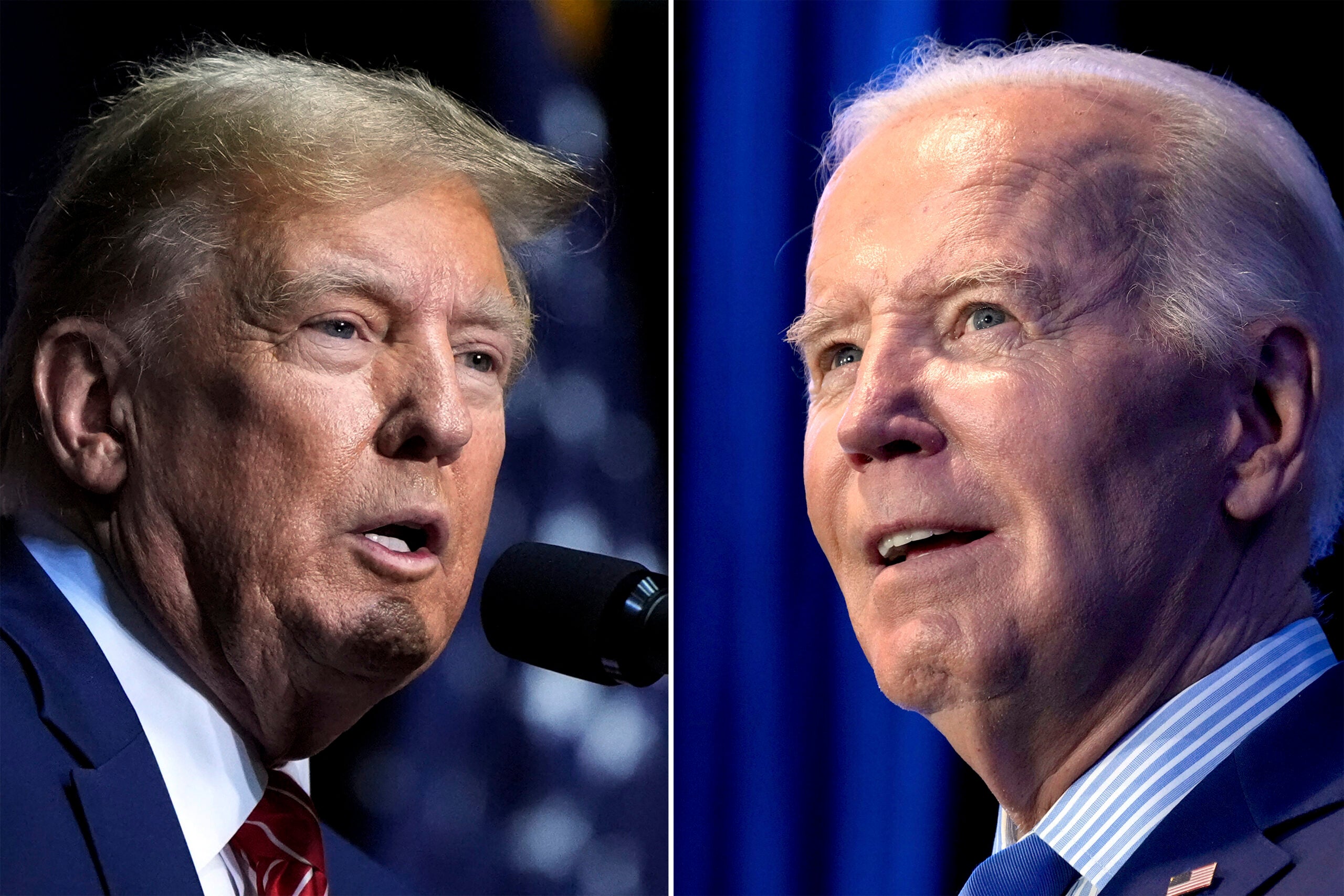President Joe Biden and former President Donald Trump remain locked in a tight race in Wisconsin, according to the latest poll released by Marquette University Law School, which showed Trump leading Biden 51-49 among registered voters.
In Wisconsin’s race for U.S. Senate, Democratic incumbent Tammy Baldwin led Republican challenger Eric Hovde 52-47 percent among registered voters — though among likely voters, the race was tied.
The results are the latest snapshot of where voters stand less than seven months from Election Day, when Wisconsin could again be one of a handful of states that decide the presidency, not to mention control of the U.S. Senate.
Stay informed on the latest news
Sign up for WPR’s email newsletter.
Marquette’s poll surveyed 814 registered voters through a combination of phone interviews and online polling. The results for both races were within the margin of error, which was plus or minus 4.8 percent.
In the race for president, the margins didn’t change when Marquette asked a smaller sample of likely voters. But when third party candidates were added to the mix, they pulled support from both frontrunners.
Among registered voters in a five-candidate race, Trump received 41 percent compared to 40 percent for Biden. Among the third-party options, Robert F. Kennedy Jr. was the top choice of 13 percent, followed by the Green Party’s Jill Stein at 3 percent and independent candidate Cornel West at 2 percent.
For Trump, the survey represented a slight move in his direction compared to Marquette’s last survey in late January, when he and Biden were tied among registered voters. But Marquette University pollster Charles Franklin cautioned against reading too much into that result.
“There’s plenty of room for this race to flip either direction,” Franklin said. “And I just think we’re fooling ourselves if we think we have a confident expectation about who’s going to be the winner.”
Independent voters and third party candidates are wildcards
Making matters harder to predict this year are two groups of people — independent voters and third party candidates — who have no loyalty to Biden or Trump.
Independent voters, which made up 34 percent of Marquette’s survey sample, supported Trump over Biden this month. In January, they supported Biden over Trump. And last October, they were split down the middle.
“We’ve seen them go back and forth over the last three polls,” Franklin said. “That’s why I am kind of downplaying how much to emphasize independents.”
In a five-way race, Kennedy tied Trump among independents this month. Kennedy also pulled more support from Republicans than from Democrats.
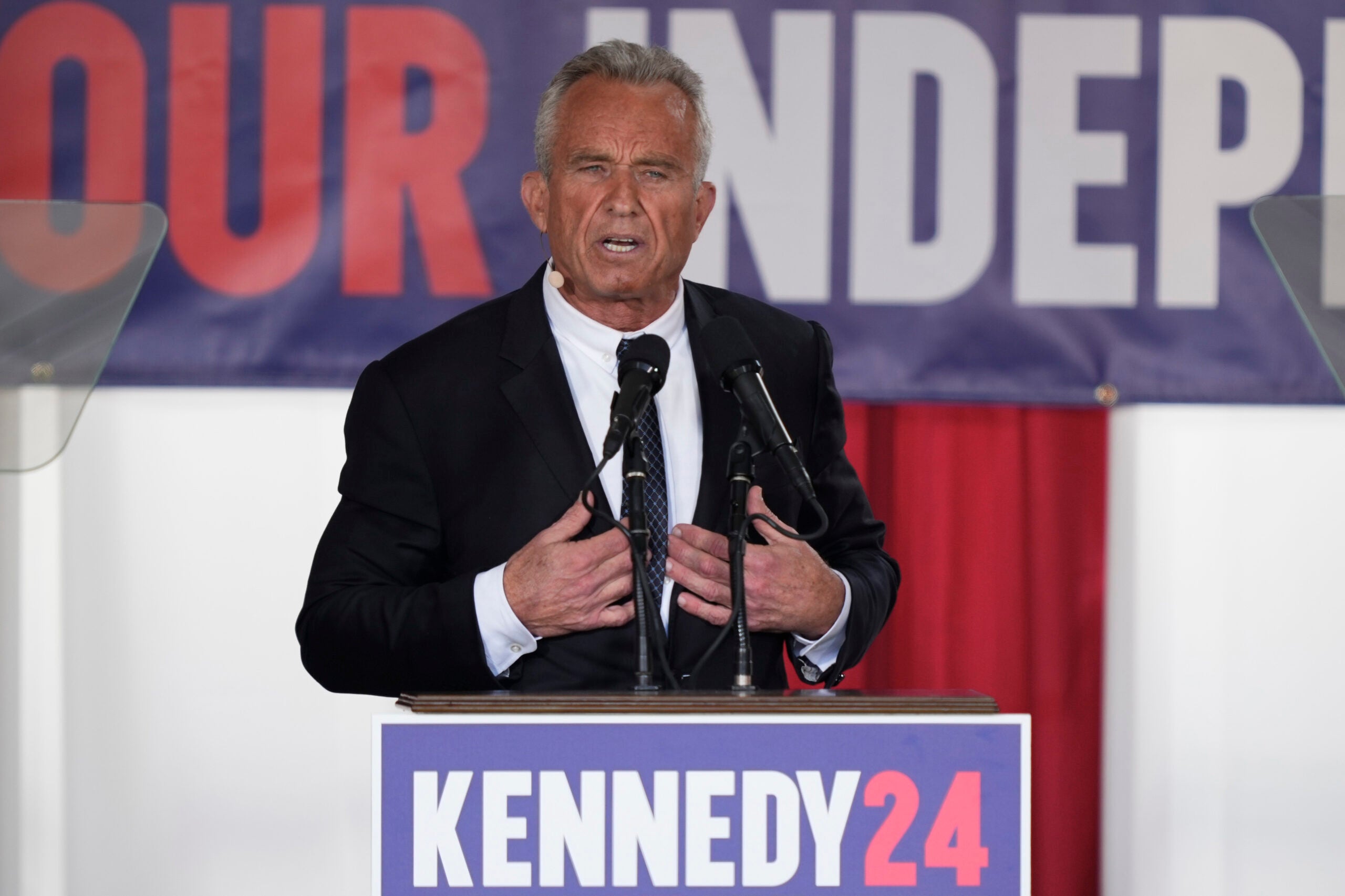
At the same time, support for Stein and West came predominantly from Democrats.
The proliferation of third party voters could pose a challenge for Biden and Trump in a state that gives meaning to the mantra “every vote counts.”
Biden won Wisconsin by just 20,608 votes in 2020, a margin of less than 1 percentage point. That year, the third party vote was minimal in Wisconsin, and the Green Party wasn’t on the ballot.
In 2016, Trump won the state by 22,748 votes. Several third-party candidates received votes that year, including Libertarian Gary Johnson, who received more than 106,000 votes, and Stein, who received 31,000.
Franklin said seeing support for third party candidates so high is a throwback to 1992, when independent presidential candidate Ross Perot received 22 percent of the vote in Wisconsin.
Senate contest could be closer than Baldwin’s 2018 race
There were strong signs for Baldwin in Marquette’s April survey, as she was supported by nearly all Democrats, a majority of independents and even 13 percent of Republicans.
“Thirteen percent is a sizable chunk for a Democrat to win from Republicans,” Franklin said. “Whether it stands up is the question.”
Her 5-point lead among registered voters included “leaners,” or voters who initially said they weren’t sure who they’d support. When those voters were listed as undecided, Franklin said Baldwin’s lead was 7 points, with 18 percent undecided.
But among likely voters, those with stronger party affiliation, Marquette’s poll showed the race between Baldwin and Hovde was tied. That’s despite a majority of voters — 54 percent — saying they don’t know enough about Hovde to form an opinion.
Baldwin won her 2018 race in what was, by Wisconsin standards, a landslide, defeating former Republican state Sen. Leah Vukmir by 11 percentage points.
Wisconsin Public Radio, © Copyright 2025, Board of Regents of the University of Wisconsin System and Wisconsin Educational Communications Board.



